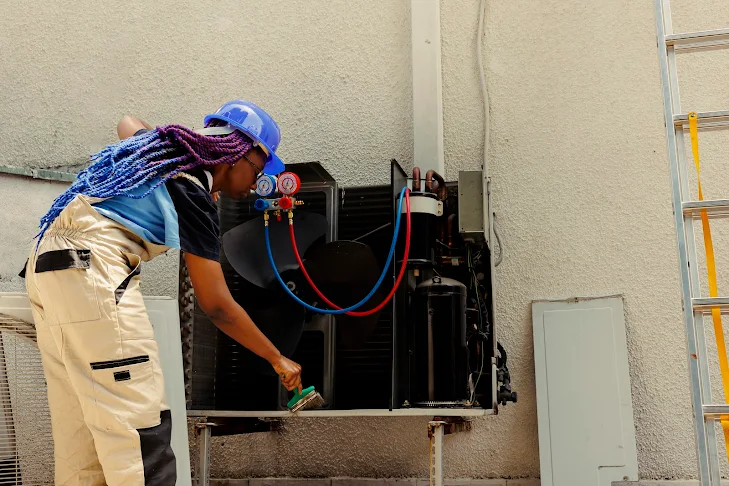What Does an HVAC Damper Do?
Understanding HVAC Dampers
An HVAC damper is a moveable plate or valve placed inside ducting. Its main purpose is to control airflow by totally obstructing it or letting it through in part. Depending on the HVAC system's particular needs, dampers can be manually or automatically operated.
HVAC Damper Types
In HVAC systems, dampers come in various forms, each with a specific function.
1. Volume Control Dampers (VCDs):
The most popular type of dampers, volume control dampers (VCDs), are usually installed in duct branches to control the airflow to certain rooms or zones. Actuators that are linked to the control system of the building allow for human or automated adjustment of the windows.
2. Fire Dampers:
Safety is of the utmost importance in HVAC design, particularly in commercial and industrial environments. In the event of a fire, fire dampers are made to close automatically, stopping the passage of smoke and flames via the ductwork.
3. Smoke Dampers:
Functioning similarly to fire dampers, smoke dampers minimize the spread of smoke within a building by activating in reaction to smoke detection.
4. Backdraft dampers:
They keep unwelcome air out of the system and conditioned air from escaping by stopping the reverse flow of air through ducts.
HVAC Dampers' Advantages
There are various advantages to placing dampers strategically and operating them correctly.
1. Enhanced Comfort:
Dampers help maintain constant temperatures throughout a structure, preventing hot or cold patches and guaranteeing occupant comfort by regulating airflow to specified regions.
2. Energy Efficiency:
Dampers help HVAC systems run more smoothly by focusing airflow where it's most needed. Reducing airflow to vacant spaces can result in a major decrease in energy use and electricity expenses.
3. Zoning Capabilities:
Dampers allow for exact control over the environment in each zone, maximizing comfort and energy efficiency in buildings with several zones or sections with different heating and cooling requirements.
4. Enhanced System Performance:
Properly operating dampers can help increase the lifespan of HVAC equipment by lessening wear and tear and straining the system.
Conclusion
HVAC dampers have a significant impact on comfort, efficiency, and safety, even though they could appear to be little parts of a larger system. Dampers, whether they are manually operated or linked to a building automation system, are essential for maximizing the efficiency of HVAC systems and improving the interior environment in general. Building owners and operators can have more control over their HVAC systems and enjoy increased comfort and energy savings by being aware of and utilizing the possibilities of dampers.

